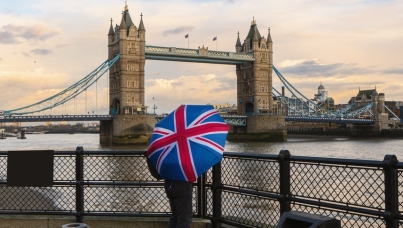Fatherhood can be a stressful and isolating experience – but maintaining close friendships can help
The quality of an individual’s social connections has been proven to be an indicator of physical and mental wellbeing and longevity, with mutually supportive friendships acting as a protective factor against anxiety and depression. Having strong social connections can be beneficial to fathers, who can experience stress and isolation during this critical life stage.
This research supports the evidence that having close friends is important for fathers’ mental health. Fathers without close friends report being more likely to experience increased stress levels in the first 12 months of becoming a father (33% say their stress levels increased a lot compared with 23% of all men with at least one close friend).
Despite this, the research also identified that some men lose contact with friends when they become a father, with a fifth (20%) of fathers saying that the number of close friends they had decreased in the 12 months after becoming a father.
Findings:
Other key findings from the research are:
- Seven in ten (70%) fathers say that their stress levels increased in the 12 months after becoming a father for the first time.
- Becoming a father can be an isolating experience. Almost a quarter (23%) of dads say they felt isolated when they first became a father.
- Becoming a father can influence men’s behaviours which negatively impacts their physical health. Over half (56%) of dads say that they experienced at least one negative health behaviour in the 12 months after becoming a father for the first time.
- Men are feeling pressured to be good fathers. 53% of current fathers and 50% of all men say that men are under more pressure nowadays to be good fathers.
- The quality of friendships is important. Fathers who are dissatisfied with the quality of their friendships are more likely to experience increased stress levels after becoming a father, not handle this stress well, feel that no-one was looking out for them and feel isolated.
- Men (and fathers) don’t always recognise the importance of close friendships. When asked to choose three very important aspects of their lives, less than a fifth of men (18%) say that having close friends is very important to them.
- There is a sizeable group of men who say they are satisfied with their friendships yet who could not or would not talk to their friends about their problems. Over half (51%) of men who could not or would not talk to their friends about their problems are satisfied with the quality of their friendships.
- Men can find it difficult to talk about problems with their friends, such as mental health. 18% of men (and 16% of fathers) say they could not, or would not, talk to a friend about problems they were finding it hard to cope with.
- Satisfaction with friendships is lowest during middle years. 43% of both 55+ year olds and 18-34 year olds say they are very satisfied with the quality of their friendships, compared with 34% of 35-54 year olds.
- The pressures of being a father are more likely to affect young fathers. They are more likely to say they felt isolated when first becoming a dad (40% of 18-35 year old fathers compared to 11% of 55+ year old fathers) and they are more likely to say their stress levels increased a lot in the first 12 months of becoming a father (29% vs. 17%).
The full report can be downloaded here.
Technical Details:
Ipsos conducted a quota survey online in the UK, Australia, Canada and the USA, with members of Ipsos Interactive Services online panels.
1,000 males aged 18-75 within each country completed the survey.
Response quotas were set for each country based on age, region and working status and the final data were weighted to reflect these profiles. These quotas were based on the latest and most relevant census information available for each country.
Fieldwork dates:
- UK: 7 - 14th May 2019
- USA: 9 - 15th May 2019
- Canada: 9 - 15th May 2019
- Australia: 10 - 14th May 2019






